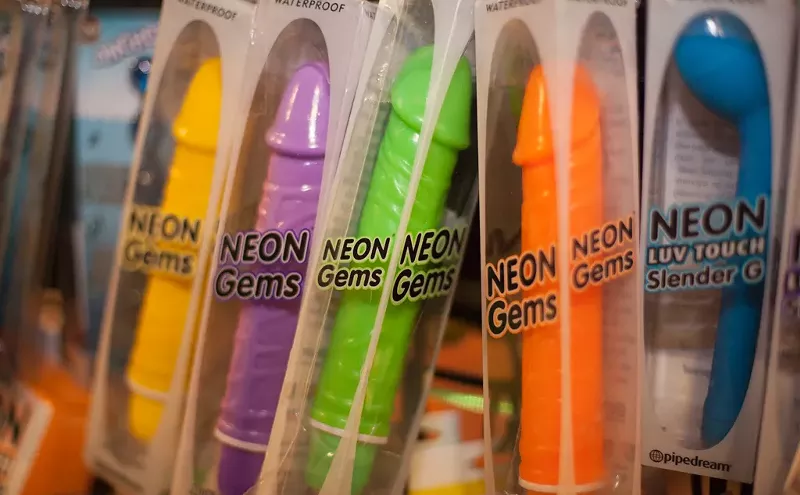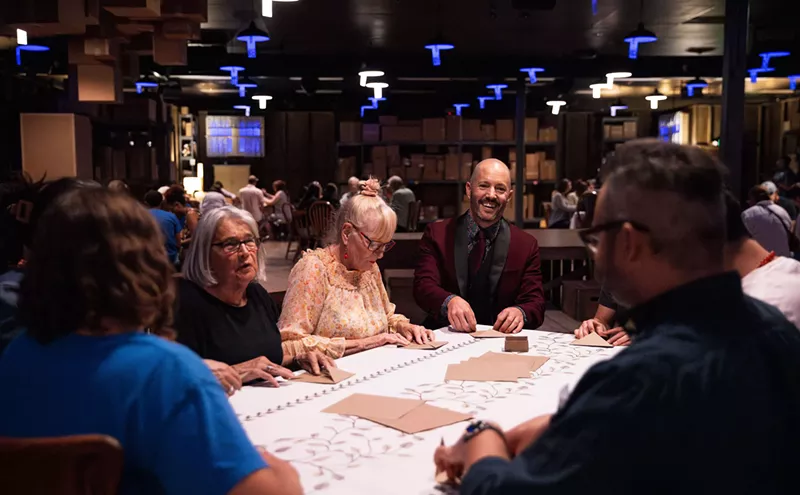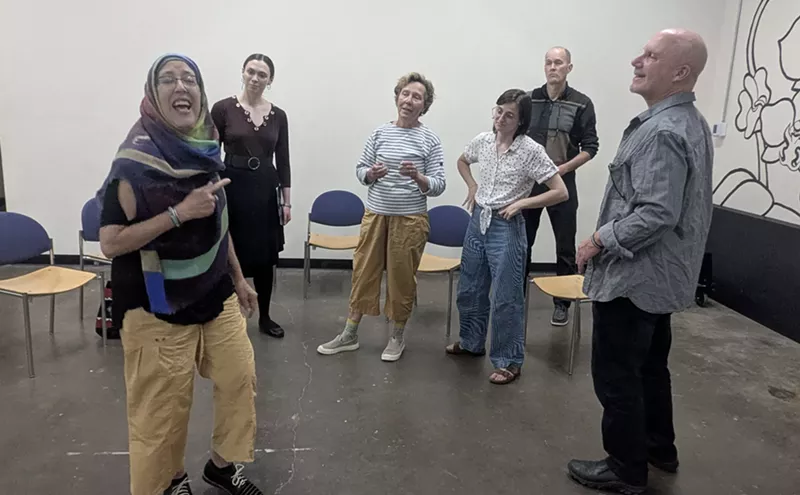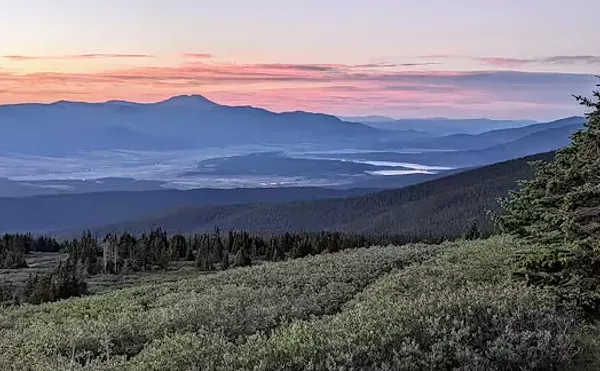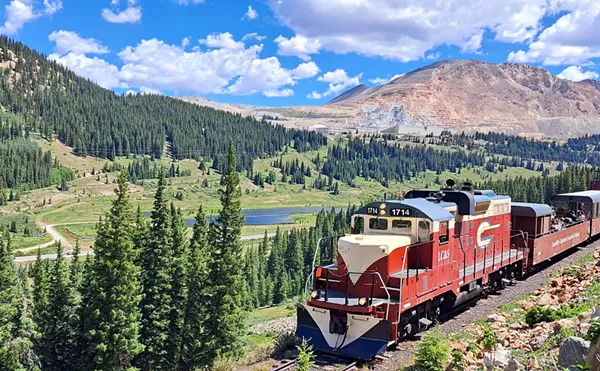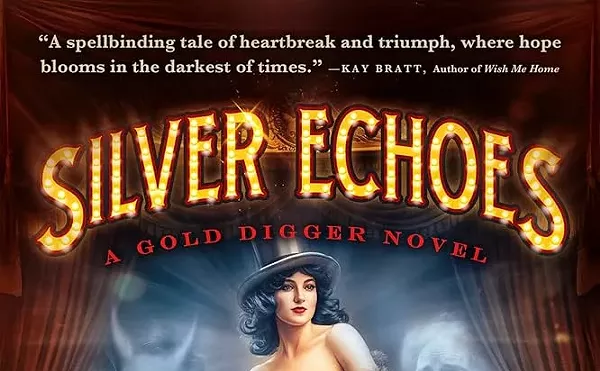Westword: You'll be in town for the Cassady Birthday Bash. I was wondering if you could talk about your experience with the Beats, Cassady and Kerouac.
John Sinclair: My life started when I read On the Road by Jack Kerouac. It came out in September 1957. I was a junior in high school. It set me on the correct path of life. I've followed that path ever since. Recently I've been reading all the early Kerouac novels. I thought that after fifty years I should read these again. I've been really inundated in the world of Kerouac and Neal Cassady circa 1946 to 1956, so mentally I'm well-prepared to be there, and I'm very honored to be part of this. One of my favorite Americans will be on the bill, and that's David Amram. I'm hoping I get to play with him as well.
From what I've read, music is a part of what you do and influences your poetry, right?
Totally.
I know some of the Beats approached poetry almost like a jazz player would.
That was his concept. Not just poetry, but all of his writing. He didn't really distinguish that much between poetry and prose. But his idea was to improvise, and especially in his poetry. His poetry was devised as choruses in jazz improvisation. So that concept is my concept. In poetry, my role model was Amiri Baraka, who sadly just passed. He was my mentor. And Charles Olson and Robert Creeley. Poetry, per se -- those were my masters. And Edward Sanders, my friend and mentor. But as far as the general approach to life -- Kerouac, Ginsberg and William S. Burroughs. They left a pretty broad trail in their wake.
I know you're a big fan of Thelonious Monk and have released some CDs of your poetry. Are they based on Monk's music or songs that Monk played?
I have elongated work in verse that's dedicated to the music of Thelonious Monk. It's called Always Know: A Book of Monk. It will be at least 150 poems when it's done. I'm writing a poem for every piece that he ever recorded -- not every time, but the first time.
And you've been working on that...
Since 1982. It's the same time I started that blues work, which I completed in 2001, called Fattening Frogs for Snakes. The book was published in New Orleans in 2002 by the Surregional Press. I've recorded all four different parts of the book with different ensembles.
When do you think you'll have the Monk book fully finished? Do you have any idea?
No, it's not up to me. I have to receive the inspiration from above. When I get the inspiration, I try to respond with a poem. I've written about a hundred of them so far.
I'd imagine Monk's playing inspires your poetry as well.
Absolutely. Not just his playing but his compositions, mental patterns, the way he lived. He was a great role model and artist -- not for somebody who wants to get rich, but as an artist he's a great role model, like Jack Kerouac. I wouldn't want to be like Jack Kerouac. He was a drunk but as an artist I aspire to the heights to which he grows. I can say that without equivocation.
It sounds like you're a big jazz fan in general.
Jazz and blues. You know, I have my own radio station?
That's right.
RadioFreeAmsterdam.com. That's my passion.
When you come to town with the Blues Scholars, what are you guys going to be doing?
Well, I don't know who's actually going to be the band. My pianist is coming up from New Orleans, Tom Worrell. He's lived in the area before and he knows guys. So he'll put a band together. Then we're going to do other things in the area. I'm going to stick around for a couple of weeks. Tom and I perform as a duet -- piano and voice -- also with bands. Whatever he puts together, I'll do it because I love Tom Worrell. We made an album together called Let's Go Get 'Em. I should say my albums. I have a lot of albums. They're hard to find but they're all on CD Baby. My hard-to-find books are on Amazon.com.
Wayne Kramer has been part of the Blues Scholars at different times. Could you talk about your time managing the MC5? It sounds like it was quite an experience.
It was a long time ago.
Forty years ago?
More than that. Yeah, it was a great period of life and I got the most of out it that I possibly could, and I got the worst. I wound up in prison. It was a great experience for about two and half years, coupled with a terrible experience of the same duration. I separate the two mentally.
Around that time you got popped for two joints and did some time, right?
I gave two joints to an undercover policewoman as a Christmas present. Isn't that sick? I look forward to experiencing a new reality in Colorado. I've been a legalization activist for fifty years. This is my fiftieth year; I started in 1964. I write about it. I speak about it. I'm an activist. And now we're finally winning! It's a beautiful thing.
Yeah, it's a little crazy out here. I heard they sold $5 million of stuff in the first week.
Well, the market for marijuana has long been well-defined. I had a friend who was in the marijuana business whose motto was, "You don't have to worry about selling weed. They're always gonna to want some weed." You just gotta worry about coming up with enough.
How long have you been in Amsterdam?
I've been based in Amsterdam for the last ten years, but I go back a lot. I'm not a resident there. I come for three months and I go back to the States for three months. I've got granddaughters that I have to see and grandchildren. And also, I don't work here. They don't know me from Adam. So I don't have any work as a poet or a performer or anything. So I have to go back to the United States to make enough money to buy my dinners.
Do you have any new projects or books that you're working on?
Yeah, I got a new record coming out in March in England on the Iron Man label called Mohawk. It's ten of my Monk poems set to music with my drummer, Steve the Fly. So that's coming up. I'm an extremely active person. I run my radio station. Next month I'll start having two hours a day of music available and new programs. Real music -- blues, jazz, roots music. I call it "Blues, Jazz and Reefer - Keeping the Music Alive." That takes a lot of my time. I just do that for fun. And I think that people need to have this music in a place where they can get at it.
I made a record with Tom Worrell called Let's Go Get 'Em. I got one called Viper Madness, a tribute to Louis Armstrong and Mezz Mezzrow I made in Detroit with the Planet D Nonet. I wrote a suite of poems for the Cannabis Cup the first time I came in, around '98, when I was the High Priest.
I travel. I perform. I'm coming to Denver February 7. Then I'm going to New Orleans and Detroit for April. The weed culture in Michigan in April is like Black History Month -- the Hash Bash. I'm a revered elder in all of that.
Didn't the Hash Bash start because of you?
Yeah. Well, we just thought we should smoke some weed on the University Diag on April Fools' Day. It'd be fun. They've been doing it every first Saturday in April ever since 1972.
Going back to Mezz Mezzrow, have you read Really the Blues?
That was influence. Between that and On the Road, I wanted to smoke some reefer but it was hard to find back in those days. It was the late '50s. I couldn't find any weed until like '62. So it was as good as I thought it would be, but it took a long time to find it. We made sure a lot of people knew about it and could get some.
You shouldn't have any problem finding out here.
That'll be good. I won't have to worry about bringing any with me. The Neal Cassady Birthday Bash starts at 8 p.m. Friday, February 7 at the Mercury Cafe, 2199 California Street. Find more details here.
Follow @WestwordCulture



